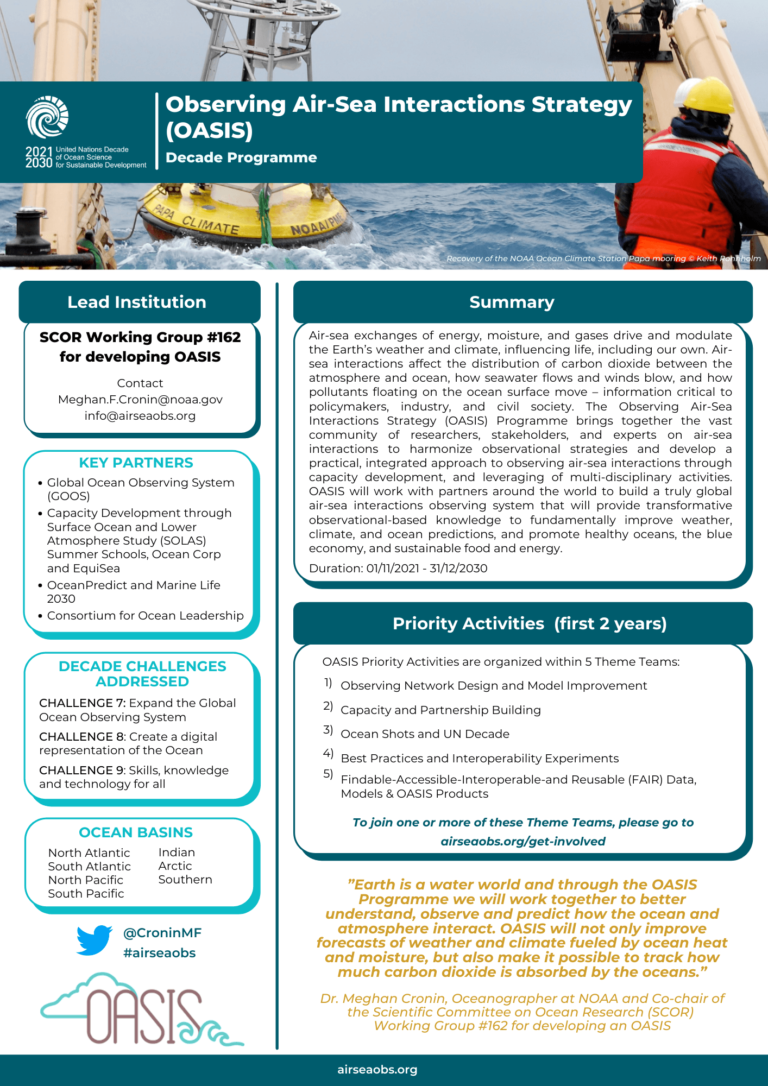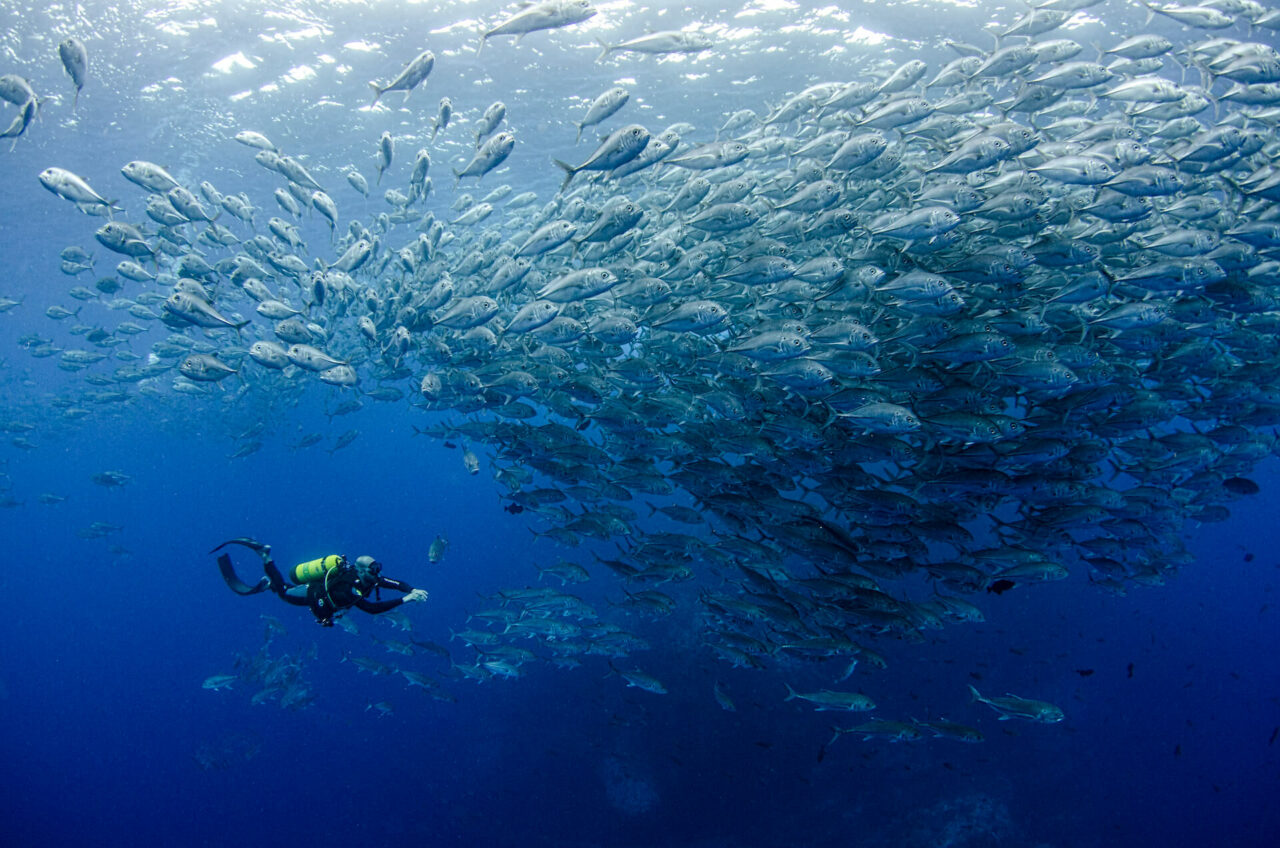Lead institution:
SCOR Working Group #162 – Developing an Observing Air-Sea Interactions Strategy (OASIS) – United States of America (USA)
Air-sea exchanges of energy, moisture, and gases drive and modulate the Earth’s weather and climate, influencing life, including our own.
These air-sea interactions fuel the hydrological cycle and affect precipitation across the globe. Air-sea interactions affect the distribution of carbon dioxide between the atmosphere and ocean, how seawater flows and winds blow, and how pollutants floating on the ocean surface move – information critical to policymakers, industry, and civil society.
The Observing Air-Sea Interactions Strategy (OASIS) Programme will provide observational-based knowledge to fundamentally improve weather, climate and ocean prediction, promote healthy oceans, the blue economy, and sustainable food and energy.
Start Date: 01/11/2021
End Date: 31/12/2030
Lead Contacts: Meghan Cronin (Meghan.F.Cronin@noaa.gov) OASIS co-chair (US), Sebastiaan Swart (sebastiaan.swart@marine.gu.se) OASIS co-chair (Sweden), Christa Marandino (cmarandino@geomar.de) OASIS co-chair (Germany), Nicholas Rome (nrome@ucar.edu), Masha Edmondson (medmondson@ucar.edu), Cassie Wilson (cassiew@ucar.edu), Madyson Miller (madyson.miller@noaa.gov)
For more information, please contact: info@airseaobs.org
This Programme hosts the following Ocean Decade Projects:

